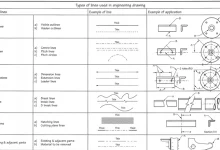Enhancing Focus: Techniques and Strategies for Improving Concentration
Introduction
In the modern world, where distractions are ubiquitous and demands on attention are high, maintaining and improving focus is a crucial skill. Enhancing concentration is not only essential for productivity but also for achieving personal and professional goals. This article explores various techniques and strategies for strengthening focus, drawing on insights from psychology, neuroscience, and practical experience.
Understanding Focus
Focus, or concentration, refers to the cognitive process of selectively concentrating on one aspect of the environment while ignoring other things. It involves both the ability to maintain attention on a task and to resist distractions. Effective focus requires a balance between attention control, working memory, and cognitive flexibility.
Psychological and Physiological Aspects of Focus
-
Attention Control: This is the ability to direct and sustain attention on a specific task. It involves mechanisms in the brain that help in filtering out irrelevant information and maintaining concentration.
-
Working Memory: Working memory refers to the system responsible for temporarily holding and manipulating information. A well-functioning working memory allows an individual to keep relevant information in mind while focusing on a task.
-
Cognitive Flexibility: This is the mental ability to switch between thinking about different concepts or to think about multiple concepts simultaneously. Cognitive flexibility helps in adjusting focus when necessary.
Techniques for Enhancing Focus
-
Establish Clear Goals
Setting clear, specific, and achievable goals is fundamental for maintaining focus. Goals provide direction and purpose, making it easier to concentrate on tasks. The SMART criteria (Specific, Measurable, Achievable, Relevant, Time-bound) can help in formulating effective goals.
-
Create a Distraction-Free Environment
A conducive environment for concentration is crucial. This involves minimizing external distractions such as noise, clutter, and interruptions. Strategies include:
- Designating a Workspace: Establishing a specific area dedicated to work or study can help in conditioning the mind for focus.
- Managing Digital Distractions: Utilizing apps and tools to block distracting websites and notifications during work periods can be beneficial.
-
Adopt the Pomodoro Technique
The Pomodoro Technique involves working in short, focused intervals (typically 25 minutes), followed by a short break. This method helps in maintaining high levels of concentration and prevents burnout. After several intervals, a longer break is taken.
-
Practice Mindfulness and Meditation
Mindfulness and meditation are powerful practices for enhancing focus. They help in improving attention control and reducing the tendency to get distracted. Techniques include:
- Mindful Breathing: Focus on the breath to train the mind to remain in the present moment.
- Body Scan Meditation: Involves paying attention to different parts of the body, helping to improve overall awareness and concentration.
-
Utilize Time Management Strategies
Effective time management can significantly enhance focus. Techniques include:
- Time Blocking: Allocating specific time blocks for different tasks helps in organizing and prioritizing work.
- The Eisenhower Matrix: This tool helps in categorizing tasks based on their urgency and importance, allowing individuals to focus on what matters most.
-
Maintain a Healthy Lifestyle
A healthy lifestyle supports cognitive function and focus. Key aspects include:
- Adequate Sleep: Quality sleep is essential for cognitive performance and focus. Aim for 7-9 hours of sleep per night.
- Balanced Diet: Consuming a diet rich in nutrients, including fruits, vegetables, whole grains, and lean proteins, supports brain health.
- Regular Exercise: Physical activity increases blood flow to the brain and can improve cognitive function and concentration.
-
Develop a Routine
Establishing a consistent daily routine helps in conditioning the mind for focus. Regular schedules and habits create a structured environment that can enhance productivity and concentration.
-
Set Up Specific Work Periods
Allocating specific periods for work and rest can improve focus. Adhering to a schedule helps in developing a rhythm and reduces procrastination.
Overcoming Common Challenges
-
Procrastination: Procrastination often arises from a lack of motivation or feeling overwhelmed. Addressing procrastination involves breaking tasks into smaller steps, setting deadlines, and using motivational techniques.
-
Mental Fatigue: Mental fatigue can impair concentration. To combat this, ensure regular breaks, get adequate sleep, and engage in activities that rejuvenate the mind.
-
Multitasking: Multitasking can reduce efficiency and focus. It is generally more effective to concentrate on one task at a time.
The Role of Technology
Technology offers both opportunities and challenges for focus. While digital tools can facilitate productivity, they can also contribute to distractions. Leveraging technology effectively involves:
- Using Productivity Apps: Tools like task managers and calendar apps help in organizing and prioritizing tasks.
- Setting Digital Boundaries: Limiting screen time and managing social media usage can help in reducing digital distractions.
Conclusion
Enhancing focus is a multifaceted endeavor that involves a combination of psychological, physiological, and practical strategies. By setting clear goals, creating a distraction-free environment, adopting time management techniques, maintaining a healthy lifestyle, and overcoming common challenges, individuals can significantly improve their concentration. As the demands on attention continue to increase in the modern world, mastering the art of focus is essential for achieving success and well-being.




